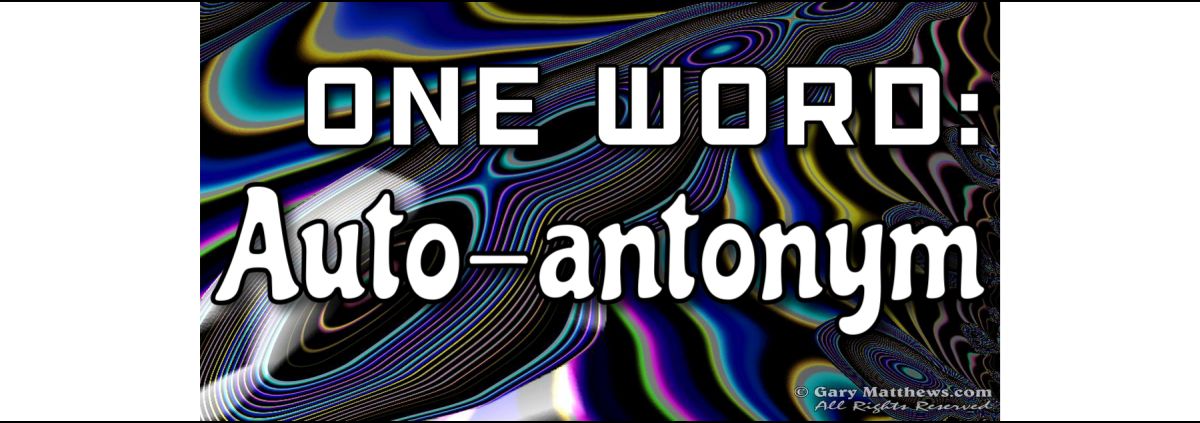An auto-antonym is any word that functions as its own opposite.
The very idea seemed bonkers when I first heard about it. But English has quite a few such words.
Normal antonyms are words with opposing meanings – up and down, in and out, good and bad. What’s different in the case of an “auto” antonym?
The “auto” prefix means “self” – literally, a self-opposite. An auto-antonym is thus a word that is the opposite of itself!
We already know that two different, outwardly opposite words can have the same meaning. Case in point: My recent article about the expressions “I couldn’t care less” and “I could care less”. Here “could” and “couldn’t” both signify one thing – a complete lack of interest.
Ditto “flammable” and “inflammable”, both of which denote strong combustibility.
So if two completely different, outwardly opposite words can carry identical meanings, can the reverse happen? Can one word carry two completely opposing meanings?
Consider “fast”. The word denotes rapid movement – a fast train, fast action, the fastest gun in the West. But it also denotes stillness and immobility. To stand fast is to stand still, without budging. To be steadfast is to be immovable. A fast friend is one whose friendship and loyalty never change.
To “dust” something is to either add dust or remove dust. To add dust, you can dust crops with pesticide (using a crop duster). You can dust a cutting board with flour, or dust a cake with powdered sugar. But you remove dust by dusting a shelf with a feather duster.
To “sanction” something means either to allow it or to forbid it. A church may for instance sanction gay marriage by authorizing (and perhaps performing) such marriages. A different church may sanction gay marriage by prohibiting and declining to recognize it.
“Out” can mean dark and invisible, or brightly visible. When the lights are out, we are in the dark. When the moon is out (and full), we are well-lit.
In English, there are literally dozens of other self-opposite words. The same is true in many other languages as well.
Some of these words are mere curiosities, arising from accidents in the development of language. That strikes me as a fair description of the examples cited above.
But certain auto-antonyms have special features of interest that make them profoundly important. I’m planning to write about some of these in the near future. Please stay tuned!
(This article is part of my series on words that are #worth1000pictures.)

